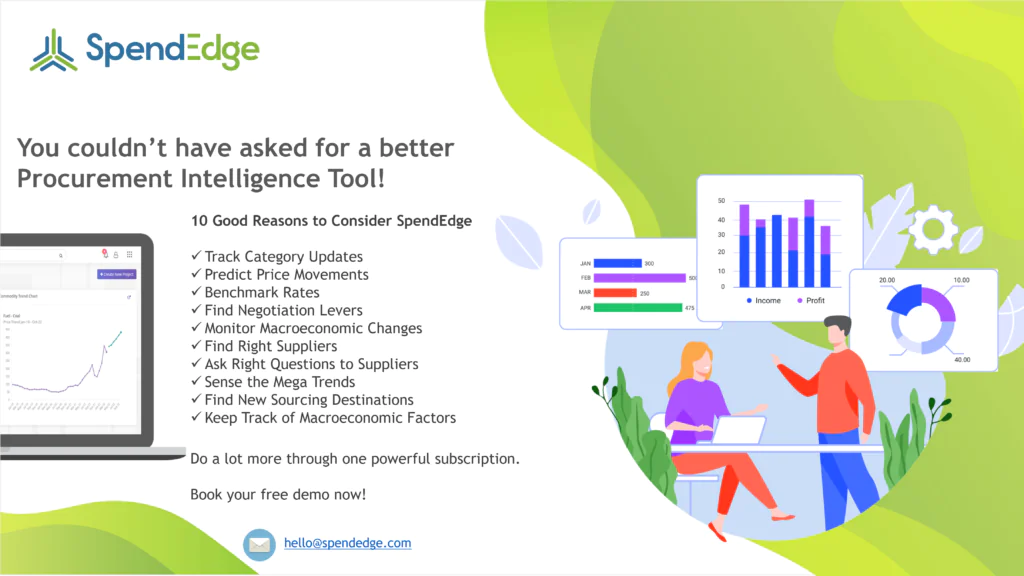By: George Mathew
Effective supply chain planning is essential during peak season to ensure smooth operations and meet the heightened demand. Peak seasons are a common phenomenon in the world of supply chain management. They typically involve periods of increased demand, often driven by factors such as holidays, promotions, or seasonal trends.
Navigating unexpected disruptions, inflationary pressures, and economic uncertainties requires meticulous planning and a high degree of agility from supply chain leaders. Real-time adjustments, robust collaboration, and proactive data sharing among partners are essential elements. Accurate demand forecasting, optimized inventory levels, adjusted production schedules, improved logistics, efficient resource allocation, and the use of technology solutions contribute to successfully overcoming challenges during peak seasons, ensuring maximum customer satisfaction and profitability.
Effective approaches to manage challenges in fulfilling orders during peak seasons:
Ensure optimal staffing levels for the peak season with strategic planning
During peak seasons, companies often face heightened demand and require a proficient workforce. One effective strategy is recruiting temporary workers, swiftly training them to address additional workload. Cross-training existing employees for multiple roles enhances workforce flexibility, allowing efficient resource reallocation. Adequate training and support are crucial for all staff members to effectively handle peak season challenges. Leveraging technology, such as warehouse management systems, provides real-time data on order volumes, aiding informed staffing decisions, particularly beneficial during fluctuating peak season demands.
Strategic management of inventory
Effective inventory planning is essential for managing peak season fulfillment successfully. Supply chain leaders must carefully adjust inventory levels to prevent shortages or overstocking, ensuring the right products are available in the correct quantities when needed. Demand forecasting, relying on past sales data and market trends, plays a pivotal role in striking this delicate balance. Informed decision-making about optimal inventory levels maximizes storage space and minimizes costs related to excess inventory. Furthermore, introducing automation technologies on the warehouse floor transforms how warehouses strategize for peak seasons, enabling them to anticipate potential shortages or delivery delays. This foresight allows for proactive measures to address challenges effectively.
Establishing transparent communication with suppliers and logistics partners
Effective communication with suppliers and logistics partners is vital for achieving successful peak season fulfillment. Maintaining regular contact with suppliers helps mitigate supply chain disruptions and ensures adequate inventory levels to meet increased demand. This entails discussing production schedules, lead times, and potential challenges within the supply chain to plan inventory effectively and prevent stockouts. Furthermore, engaging in collaborative planning with suppliers and logistics partners facilitates the sharing of sales forecasts, inventory data, and shipping schedules, enabling the creation of a cohesive plan for peak season fulfillment. This collaborative approach enhances coordination and efficiency between businesses and their partners, contributing to smoother operations during peak periods.
How SpendEdge can assist organizations in overcoming challenges during peak season rushes and optimizing their supply chain management:

To have a clear understanding of our services at SpendEdge
Developing a robust strategic plan to efficiently evaluate and address market dynamics:
Our outsourcing advisory team conducts detailed category analysis to grasp specific requirements, risks, and opportunities within a product or service category. This involves assessing market dynamics, industry trends, and regulatory factors. They identify key cost drivers in the supply chain, utilizing cost modeling and benchmarking to evaluate supplier pricing competitiveness. Our experts keep organizations informed about market trends, emerging technologies, and shifts in consumer preferences for effective sourcing strategies to mitigate rush peak season challenges. They provide regular market intelligence reports, evaluate supplier strengths and weaknesses, and offer guidance on engagement strategies, contract negotiation, and supply chain management best practices.
Formulating robust strategies and innovative solutions to elevate the efficiency of procurement processes:
Our experts conduct a thorough analysis of your current sourcing processes, aligning them with organizational goals. They develop a procurement strategy for cost savings, quality assurance, and supplier collaboration, prioritizing improvements based on efficiency and cost reduction. Utilizing key performance indicators, they assess current operations and identify patterns in historical data for peak seasons. Our experts’ detailed plan includes resource allocation, inventory management, and logistics optimization.
Implementing a focused market intelligence system to alleviate challenges during peak seasons:
Our advisors implement a consistent benchmarking process, comparing our practices with industry peers and competitors to pinpoint emerging best practices. They consistently assess and improve sourcing and sustainability methods by staying updated on the latest industry trends and innovations. Our strategy includes creating a systematic approach to stay informed about competitors’ advancements in sourcing, incorporating activities such as market research and engagement with industry publications.
Success Story: How we helped the leading retail company navigate peak season rushes and enhance their supply chain management
Our client is a US-based prominent retail company, that offers a range of food and household products through its extensive supermarket chain.
The client faced challenges during peak seasons, leading to increased costs and potential supply chain disruptions.
Our experts prioritized product categories based on sales and peak season demand, evaluating their criticality for customer satisfaction and business sustainability. They analyzed historical cost data to pinpoint procurement cost drivers and optimize expenses. Market trends were scrutinized to anticipate changes in consumer behavior. Implemented demand forecasting models and ensured alignment with market demands during peak seasons. Furthermore, our experts conducted supplier assessments focused on scalability and reliability, leading to a tailored procurement strategy. Technology solutions were identified for efficiency, and defined KPIs measured success. They also addressed potential risks, providing a clear roadmap for implementation.
Our solutions not only enhanced the client’s operational efficiency but also strategically positioned them to seize market opportunities, leading to an overall improvement in customer satisfaction.

Contact us now to solve your procurement problems!
Author’s Details
George Mathew
Associate Vice President, Sourcing and Procurement Intelligence
George is a procurement specialist at Infiniti Research and provides advisory services to clients across the pharmaceutical, CPG & FMCG, energy, and automotive sectors. He specializes in the procurement areas of industry benchmarking, cost modeling, rate card benchmarking, negotiation advisory, and supplier intelligence.




